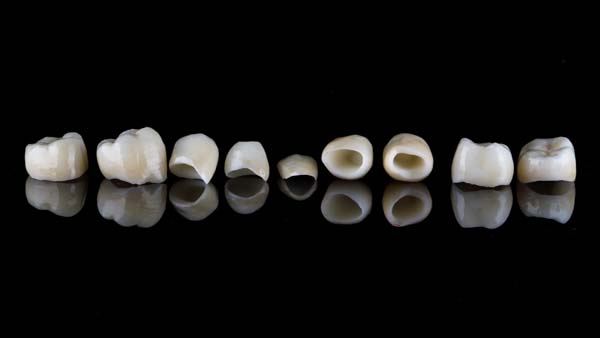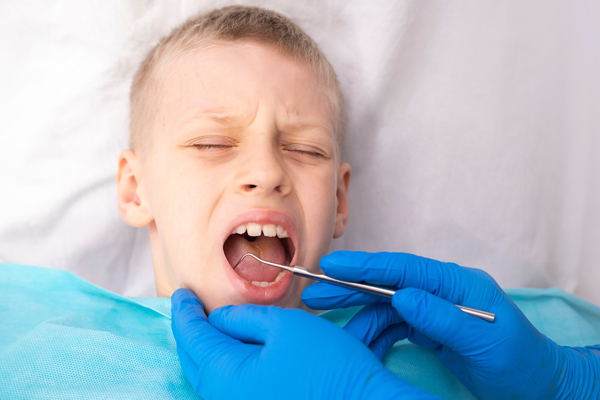6 Baby Dental Crown FAQs

Baby dental crown placement is a common treatment performed in pediatric dentistry. While the word "baby" does imply that they are used for infants, these crowns are actually used for baby or primary teeth, whether in a toddler or child who is anywhere from the ages of four to 10 years old.
6 Common baby dental crown questions
Outlined below are a few frequently asked questions and answers regarding baby dental crowns. Parents that have been told their child needs a baby dental crown can review this information to get a better idea of what to expect.
1. What is a baby dental crown?
A baby dental crown is a small cap that is used for baby teeth. It functions the same way a traditional dental crown does, however, it is smaller and less durable, as it is not meant to last forever.
2. When are baby dental crowns needed?
A baby dental crown is typically needed when a child has a cavity or abnormality that poses a risk to oral health. In most cases, cavities can be remedied with a dental filling, however, if it is more severe, a baby dental crown may be required. In the case that an accident occurs, a chipped or cracked tooth may be the result, which may also require a pediatric dentist to place a baby dental crown.
3. Are baby dental crowns safe?
Yes. Baby dental crowns may sound intimidating, but parents can rest assured knowing that the baby is safe in the pediatric dentist's hands. Baby dental crowns are actually necessary in order to keep the natural tooth safe until it falls out to be replaced by the adult tooth.
4. What is a baby dental crown made of?
Baby dental crowns are typically made of metal or porcelain, however, most pediatric dentists have converted to porcelain as they are more customized. Metal crowns are more affordable, but porcelain looks more natural (which may not be a concern for baby teeth as they will fall out eventually).
5. Will a baby dental crown placement hurt the child?
No, but there may be some discomfort. Baby dental crowns are similar to adult ones, however, they are geared toward baby teeth. With that being said, it is important to understand that the procedure can be uncomfortable as decayed or damaged parts of the tooth do have to be removed in the process. However, pediatric dentists work to combat any discomfort with a numbing agent and laughing gas. After the baby dental crown has been placed, the child may feel some slight soreness or sensitivity, which can be remedied with an over-the-counter children's pain reliever.
6. Are there any alternatives to baby dental crowns?
Most pediatric dentists only recommend a baby dental crown when absolutely necessary. While parents may be hesitant about the procedure, it is almost always necessary in order to address the problem at hand.
Consult with a pediatric dentist
Parents that still have questions about baby dental crowns can reach out directly to a pediatric dentist. The pediatric dentist can address these questions and go over any other concerns. To find out more or to get scheduled for an appointment, contact us today.
Request an appointment here: https://pediatric-dental-arts.com or call Pediatric Dental Arts at (617) 209-6434 for an appointment in our Watertown office.
Check out what others are saying about our dental services on Yelp: Dental Crowns and Dental Bridges in Watertown, MA.
Recent Posts
Kids dental crowns are typically used to prevent baby teeth from falling out prematurely. While there is a common misconception that baby teeth are not important since they serve a temporary role, that could not be further from the truth. Baby teeth play a crucial role, holding space for the permanent teeth behind them. There…
Baby teeth are more important than many people realize, which is why doctors may recommend a stainless steel crown when a tooth has decay. These teeth do fall out, but before that happens, primary or baby teeth serve many functions. Baby teeth help in biting and chewing food and in proper speech development. Most children…
Cavity treatment for kids is a common concern for many parents, as dental decay remains a prevalent childhood health issue. Early intervention and proper care are essential for maintaining healthy teeth and preventing future problems. Partnering with a pediatric dentist can take some of the guesswork out of promoting your child's oral health. To start…
Infants can benefit from seeing a pediatric dentist when primary teeth begin to erupt. Primary teeth are placeholders for permanent teeth and should receive the same attention, including appropriate home care. Primary teeth are crucial to a baby's health and development. Therefore, dentists encourage parents to begin an infant's oral hygiene routine as soon as possible…


